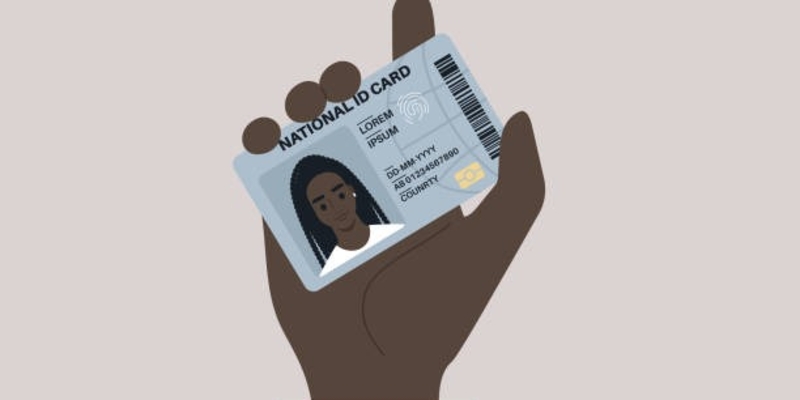Do you dream of hopping in an RV and hitting the open road? Making memories with friends while exploring the vastness of nature? Believe it or not, getting an RV loan is simpler than you might think. With a few steps, you can get your loan approved and cruise to adventure!
From choosing a lender to understanding payment terms, our guide on how to get an RV loan will provide all the information you need to make this dream come true. Ready?
How to Qualify for an RV Loan
If you are looking to secure an RV loan, you must meet a few qualifications. Your credit score should be in good standing, and lenders will likely require proof of income, such as pay stubs or tax returns. You may also need to provide assets demonstrating your ability to repay the loan.
Remember that the higher your credit score and down payment, the better your chances of securing an RV loan. Regarding interest rates, those with higher credit scores may be offered lower rates than those with lower credit scores. You should also expect a loan term ranging from 5-15 years, depending on the type of RV you select and the lender you choose.
When looking for a lender, you should consider fees, interest rates, and loan terms. It’s also important to consider reviews from past customers so you know what to expect when working with the lender.
1 Credit Score Requirements
Your credit score should be in good standing, with a minimum of 650. A higher credit score will give you more favorable terms and conditions, such as lower interest rates.
2 Proof of Income
You are likely to need proof of income to secure an RV loan. This could include pay stubs from your employer or tax returns for the past two years.
3 Down Payment
A down payment can help reduce the amount you need to borrow and may also help secure more favorable loan terms. The amount you need will depend on the value of the RV, but in general, it should be 10-20 % of the purchase price.
4 Assets
Lenders may require you to provide assets as collateral for the loan. This could include stocks, bonds, mutual funds, or a home if you own one.
5 Loan Term
The loan term depends on your lender, credit score, and the type of RV you are looking to buy. Generally speaking, terms range from 5-15 years.
6 Choosing the Right Lender
When choosing a lender for an RV loan, it is important to consider factors such as fees, interest rates, and loan terms. You should also read reviews from previous customers to know what to expect when working with them.
Types of Lenders Offer RV Loans
In the end, getting an RV loan requires some research and preparation. But with the right lender and good credit score, you can make your dream of hitting the open road a reality! So don’t wait any longer - let’s start today on making your RV dreams come true! Good luck!
When it comes to finding a lender for an RV loan, there are several types of lenders to consider. Here’s a quick breakdown of the different kinds and what they can offer:
Banks & Credit Unions
These traditional institutions typically have the best interest rates but may also require more paperwork and come with stricter credit score requirements.
Online Lenders
These lenders are typically easier to qualify for than traditional banks but may have higher interest rates.
Manufacturers & Dealerships
Many of these institutions offer RV loans and may have financing options that can work with your budget.
Peer-to-Peer Lenders
These lenders work like online marketplaces, with investors providing loan funds. They offer competitive rates but may have stricter credit score requirements than other lenders.
Credit Cards
Credit cards are usually a short-term solution and can cover purchases up to a certain limit. However, they typically come with higher interest rates.
Personal Loans
Personal loans could be a quick and easy option, but no collateral is required, so take caution if you are considering this route, as interest rates can be high.
No-Interest Financing Options
Some dealerships may offer special financing deals with no interest for a certain period. Be sure to read the fine print before signing any loan agreement.
How to Do RV Loans Work
RV loans are similar to other types of vehicle financing. When you apply for an RV loan, your lender will evaluate your credit score, financial information, as well as the value of the RV. From there, they’ll determine how much they can lend you and what type of terms you qualify for based on their criteria.
Once approved, you’ll pay down and sign the loan agreement. Your monthly payments will include interest and principal repayment until the loan is paid off.
When applied for responsibly, an RV loan can be a great way to finance your dream of hitting the open road. So don’t wait any longer - let’s start today on making your RV dreams come true! You can cruise in style with the right lender before you know it. Good luck!
Things to Consider When Choosing an RV Loan
When choosing a loan for your RV purchase, several factors must be considered. Here are some of the most important things you should look out for:
- Interest rate: The interest rate can make a huge difference in the total cost of the loan. As such, shopping around and comparing rates from different lenders before committing to a particular loan is important.
- Loan terms: Loan terms vary from lender to lender, so make sure you read through the details carefully before signing a loan agreement.
- Charges: Most lenders will charge various fees, from application and origination fees to prepayment penalties. Be sure to read the fine print before signing any agreement.
- Repayment options: Not all lenders offer the same repayment options, so it’s important to shop around to find one that works for your budget.
- Customer service: Finally, research the customer service offered by each lender you are considering. Reviews from past customers will give you some insight into how well the lender supports their customers.
FAQs
How much of a down payment do I need for an RV loan?
The amount you need will depend on the value of the RV, but in general, it should be 10-20 % of the purchase price.
What credit score do I need to get approved for an RV loan?
Your credit score should be in good standing, with a minimum of 650. A higher credit score will give you more favorable terms and conditions, such as lower interest rates.
Are there any other fees associated with an RV loan?
Most lenders will charge various fees, from application and origination fees to prepayment penalties. Be sure to read the fine print before signing any agreement.
Conclusion
Getting an RV loan is simpler than you think. With the right lender, a good credit score, and a down payment, you can make your dream of hitting the open road a reality! Do your research and shop around to find a lender that meets all your needs. Good luck!




